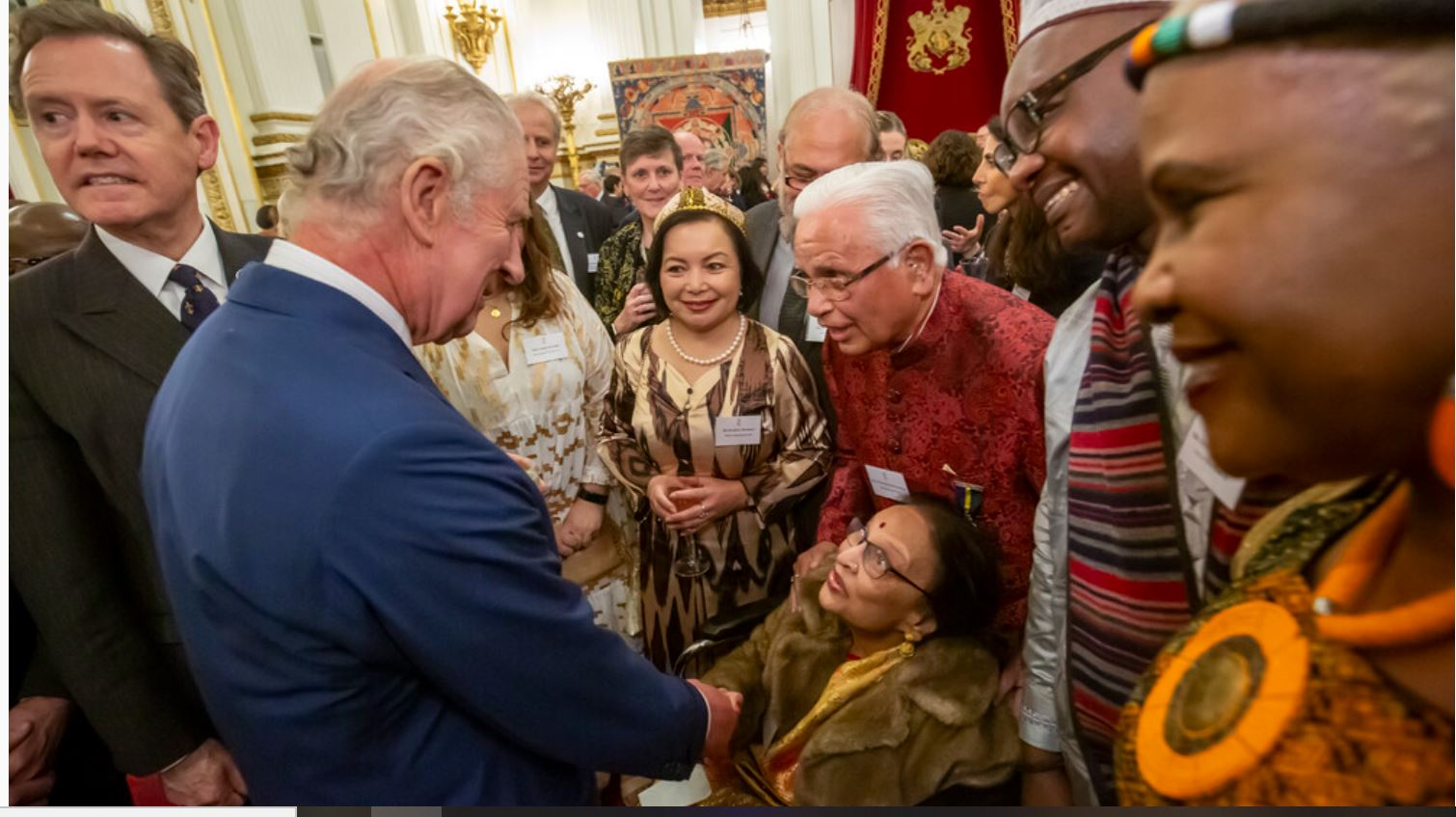Dr Alice Mpofu-Coles is a Community Research Associate in the School of Archaeology, Geography and Environmental Science (SAGES) at the University of Reading. Here, she reflects on a packed year as a community researcher and an activist and advocate for refugees. Alice works with colleagues and partners towards the University’s goal of being an engaged university and this blog gives an insight into this work and its challenges and rewards.
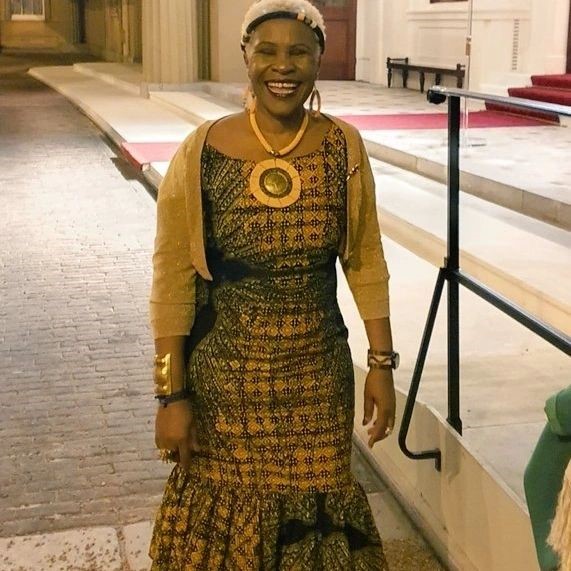
January 2023: Race Equality Charter
I am part of RE-ACT, the Race Equality at Reading Action Team, and in January, the University received the Bronze award from Advance HE’s Race Equality Charter. I first got involved with this challenging piece of work in 2019, and continue to work with the Racial Equality Implementation Team. As a black woman who experiences racism all the time, I came into academia after a lengthy working background. I am interested in action-orientated goals that make a difference to staff and students. Through this work, I have been invited to lead anti-racism sessions with students in other departments.
In our School, SAGES, I continue to work on Equality, Diversity and Inclusion with staff and PhD students Selma Benyovszky, Robyn Woronka and Badsha Hossain. This follows ‘Belonging in SAGES’, a piece of research that we completed in 2020 and forms part of Promoting Racial Justice in Teaching and Learning.
March 2023: Women’s History Month and Lifespring Stories at Reading Museum
With the Women@Reading Network, I helped to organise an event for Women’s History Month to highlight the inequalities faced in maternity healthcare by women from Black and Asian backgrounds. Black women are four times more likely to die in childbirth than white women, while Asian and mixed-race women are twice as likely. The University hosted the event with the Royal Berkshire NHS Foundation Trust. It was moving and saddening to hear the stories of women who have faced difficulties in maternity care and were discriminated against due to the colour of their skin.
In March, Reading Museum launched our Lifespring Stories – An Oxford Road Project. The stories of the people of Oxford Road in Reading will be permanently displayed at the museum, and you can visit to see the project. It is a project that I have worked on with Robyn Woronka, a PhD researcher in the Department of Human Geography, since 2020. Our research uses participatory action methods, which are about co-production. dissemination and impact. By using different forums to talk about our work we hope to bring change to marginalised communities.
June 2023: Refugee Week, Windrush anniversary and launch of PAR toolkit
For Refugee Week, Sanctuary Strikers (a refugee football team that I founded with Tomson Chauke) organised a community tournament in collaboration with Reading City of Sanctuary and sponsored by the University.
This same month I arranged a celebration lunch for the 75th anniversary of the Windrush Generation. For most members of the Reading Golders Luncheon Club, it was the first time they had visited the University.
The Participatory Action Research (PAR) toolkit we have been working on since 2022, led by Dr Sally Lloyd-Evans and Dr Esther Oenga, was launched at a networking event, and the resources made available online. The challenge with taking a participatory approach is that the work is underfunded and has precarious temporary contracts with unusual working hours. There are also different systems and structures you must engage with, working across numerous departments within the University and with partner organisations. Our toolkit is for community researchers, community organisations, students, and academics who want to reflect on and better understand the principles and everyday practices of participatory action research.
September 2023: Quality of Life symposium
In September I was invited to speak at the Quality of Life symposium in London, answering the question: what needs to change in industry and policy to ensure we develop homes that contribute to people’s health and wellbeing? This invitation came as a result of working collaboratively with the School of Architecture’s research project in Reading using participatory methods.
October 2023: British Science Association project and Black History Month
Our British Science Association (BSA) Community Led Research Pilot is now recruiting experts from the University of Reading to work on the six projects in Slough and Reading. With the British Science Association research work, which started in October 2022, I continued working during the summer of 2023 as there was a need for the 13 community groups across Berkshire to be supported in doing their activity testing. Sometimes I will be in different places in the evening or weekends.
On 17 October, the community groups came to the University for a collaborative event to network and thank them for their research work. Approximately 80 people from different communities across Berkshire attended the event, most of whom had never been to the University before. One group member said that he thought universities were pretentious and that working with our team had made him feel welcome. We had built trust and engaged with them in their own spaces.
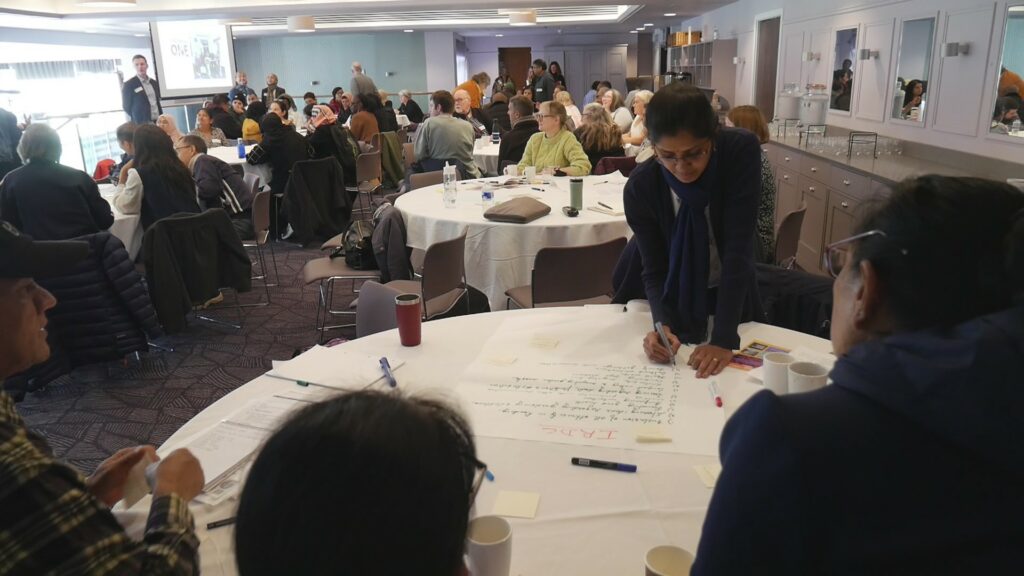
Creating relationships with communities in Slough led to an invitation from the Slough Council for Voluntary Service to come and share our work with different groups across Slough, Windsor and Maidenhead on Celebrating Diversity Day.
For Black History Month, the BAME Network and Women@Reading worked together to host an event on the theme of Saluting Our Black Sisters. The event brought in black sisters from the community of Berkshire to speak about their organisations and journeys.
November 2023: The Salvesen Lecture and royal recognition of work to support refugees
I am collaborating with Dr Holly Joseph from the Centre for Literacy and Multilingualism on a participatory research project about heritage language events on Oxford Road in Reading, where over 70 languages are spoken. We were invited to give the Salvesen Lecture at Edinburgh University on 17 November 2023 to talk about why understanding families, communities, and social inequalities are key to supporting children’s reading and received an award from Alastair Salvesen.
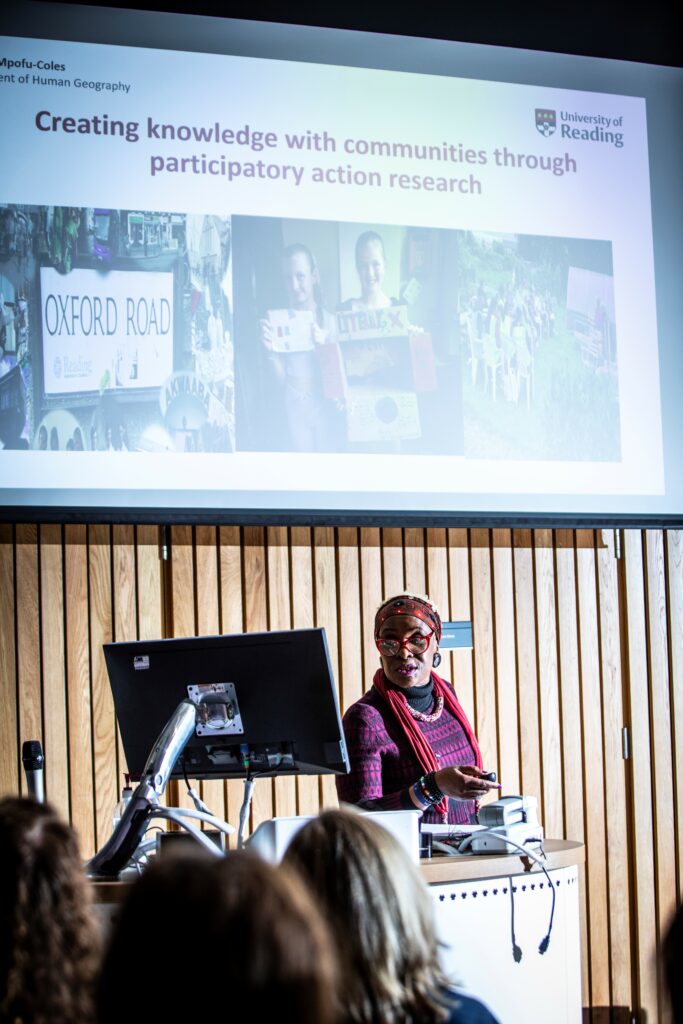
I have spent over 20 years advocating for and supporting refugees locally, nationally and internationally. My refugee work started in 2003 through lived experience and has included volunteering at Reading Refugee Support Group (RRSG) as Vice-Chair and Chair and helping set up Reading City of Sanctuary. I am a trustee of the national charity City of Sanctuary and Vice-Chair for the Alliance for Cohesion and Racial Equality (ACRE) in Reading, which works with refugees.
I have been involved in the Grundtvig lifelong learning project for women refugees in Europe in 2012. I have previously been recognised with an Honorary Master’s Degree in 2014 for contributions to community education, refugees and civil service and an award for being the most inspiring refugee woman in Reading. I played a leading role in Reading Refugee Support Group being awarded the Queen’s Award for Voluntary Service in 2019.
When I was asked to provide my details to be invited to Buckingham Palace for a Humanitarian Reception on Wednesday, 8 November, by invitation of His Majesty King Charles III and Queen Camilla, I thought that things like that don’t happen to people like me.
At the palace event, I greeted the King and briefly discussed our work with the City of Sanctuary. It was an out-of-body experience, and I loved how I spent a long time talking to high-profile people like Jon Snow, Sir Trevor Macdonald, Dame Joanna Lumley, Adrian Lester, Sir Michael Palin and Tamsin Greig about humanitarian work and our experiences inside Buckingham Palace. I explained to Dame Joanna Lumley that our current research works with Gurkhas. She said she is doing work for them to get support to read. The actor, Adrian Lester, talked about his theatre in Birmingham, working with sanctuary seekers.
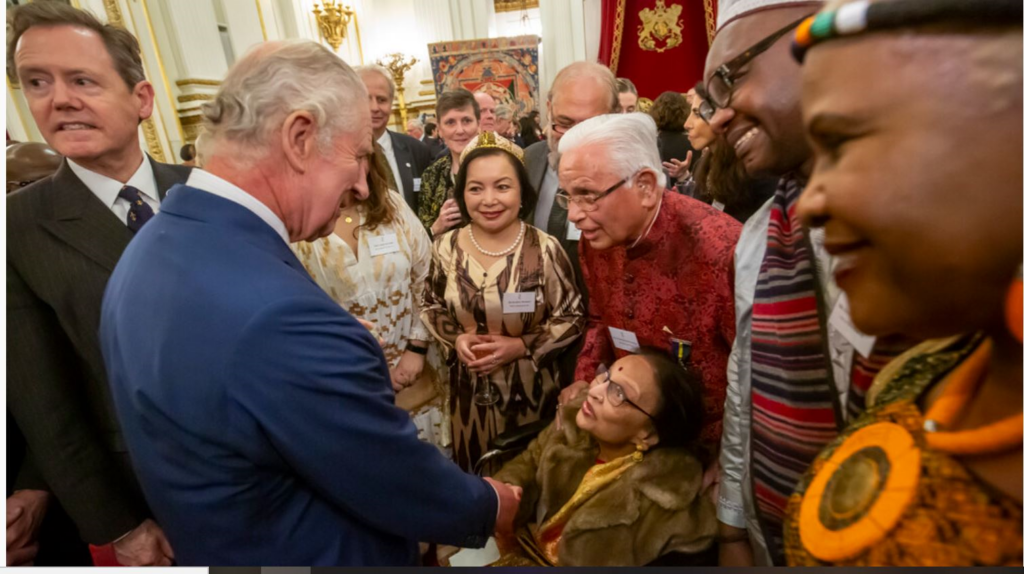
Looking forward to 2024
In 2024 I’ll be continuing to work on many of the projects above as well as supporting a project with researchers from the Economics Department on ‘maternal well-being, infant feeding, and return to paid work’. There is never one day that is the same in my work, and some days are very challenging. Still, I enjoy the different work, thinking strategically, implementing and working with other academics across various disciplines at the University and with diverse communities. I am constantly reminded of one of my favourite books by Linda Tuhiwai Smith, Decolonising Methodologies:
“Research for social justice expands and improves the conditions for justice; it is an intellectual, cognitive and moral project, often fraught, never complete, but worthwhile”.

